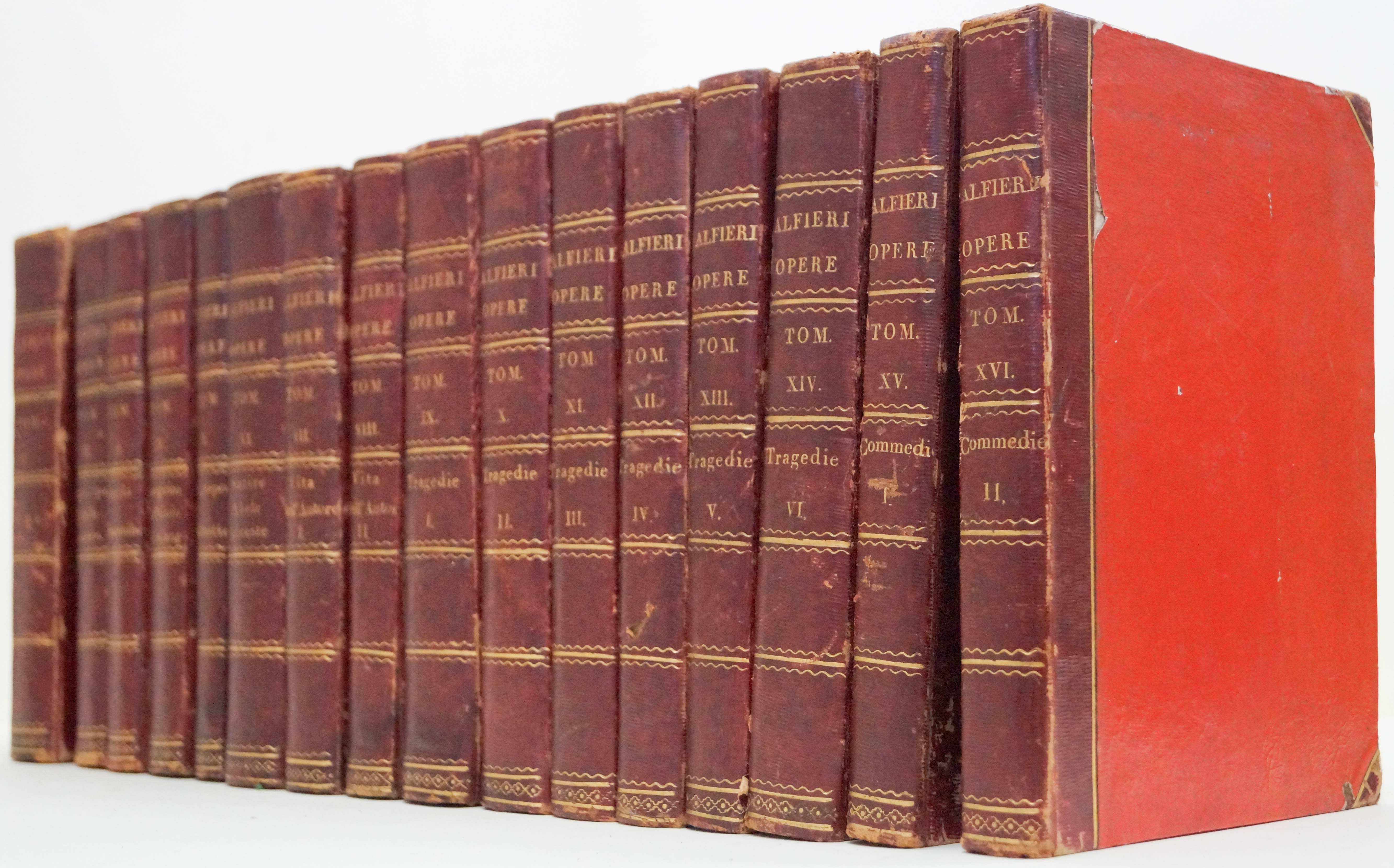OK
OK Cancel


ALFIERI, VITTORIO
Opere di Vittorio Alfieri. Tom. I-XVI. 16 volumes.
Italia (Pisa), np, 1805-1809.
Engraved portrait in volume 7. Halfleather. Spine gilt. *spines and sides slightly damaged, some foxing; volumes 3-8 slightly waterstained; side volume 1, 8, 9 damaged; volume 9 waterstained, paper partly uncut, otherwise fair condition*
Volume 1: Rime, Volume 2: Il principe e le lettere, Volume 3: Della tirannibe, Volume 4: Panegirico di Plinio a Trajano, Volume 5: C. Crispo Sallustio tradotto in italiano, Volume 6: Satire, Abele, Alceste, Volume 7 and 8: Vita dell'autore, Volumes 9 -14: Tragedie, Volume 15 and 16: Commedie. The complete edition was published between 1805-1822 and appeared in 22 volumes. 'Belle édit, tirée`250 exemplaires (...)'. Brunet, 1, 19242. 'Vittorio Alfieri, Asti 16-1-1749 - Florence 8-10-1803. 'Italian tragic poet whose predominant theme was the overthrow of tyranny. In his tragedies, he hoped to provide Italy with dramas comparable to those of other European nations. Through his lyrics and dramas he helped to revive the national spirit of Italy and so earned the title of precursor of the Risorgimento, Educated at the Military Academy of Turin, Alfieri became an ensign. A distaste for military life led him to obtain leave to travel through most of Europe. In England he found the political liberty that became his ideal, and in France the literature that influenced him most profoundly. He studied Voltaire, J.J. Rousseau, and above all, Montesquieu. Alfieri settled in Turin in 1772 and resigned his commission the following year. To divert himself, he wrote 'Cleopatra', a tragedy performed with great succes in 1775. Thereupon Alfieri decided to devote himself to literature. He began a methodical study of the classics and of the Italian poets, and since he expressed himself mainly in French, the language of the ruling classes in Turin, he went to Tuscany to familiarize himself with pure Italian. By 1782 he had written 14 tragedies as well as many poems (including four odes in the series 'L'America libera', on American independence). Meanwhile, in Florence in 1777, Alfieri had met the Countess of Albany, wife of the Stuart pretender to the English throne, Charles Edward. He remained deeply attached to her for the rest of his life. Alfieri's genius was essentialy dramatic. Alfieri's tragedies present the struggle between a champion of liberty and a tyrant.' Encyclopaedia Brittanica
Boeknummer 604415 € 650.00





